WeChat quietly strengthens AI, is 'AI WeChat' Tencent's another overt scheme?
![]() 10/21 2024
10/21 2024
![]() 451
451
WeChat, the national super app once known as the 'most laid-back' in terms of updates, has been increasingly busy lately.
On October 8th, WeChat's HarmonyOS native version officially began inviting users for beta testing. Although this native version only provides the most basic functions such as chatting, Moments, and payment, it still completes an essential piece of the HarmonyOS software ecosystem. Interestingly, shortly after announcing the native HarmonyOS version, WeChat surprised everyone again with another unexpected feature update.
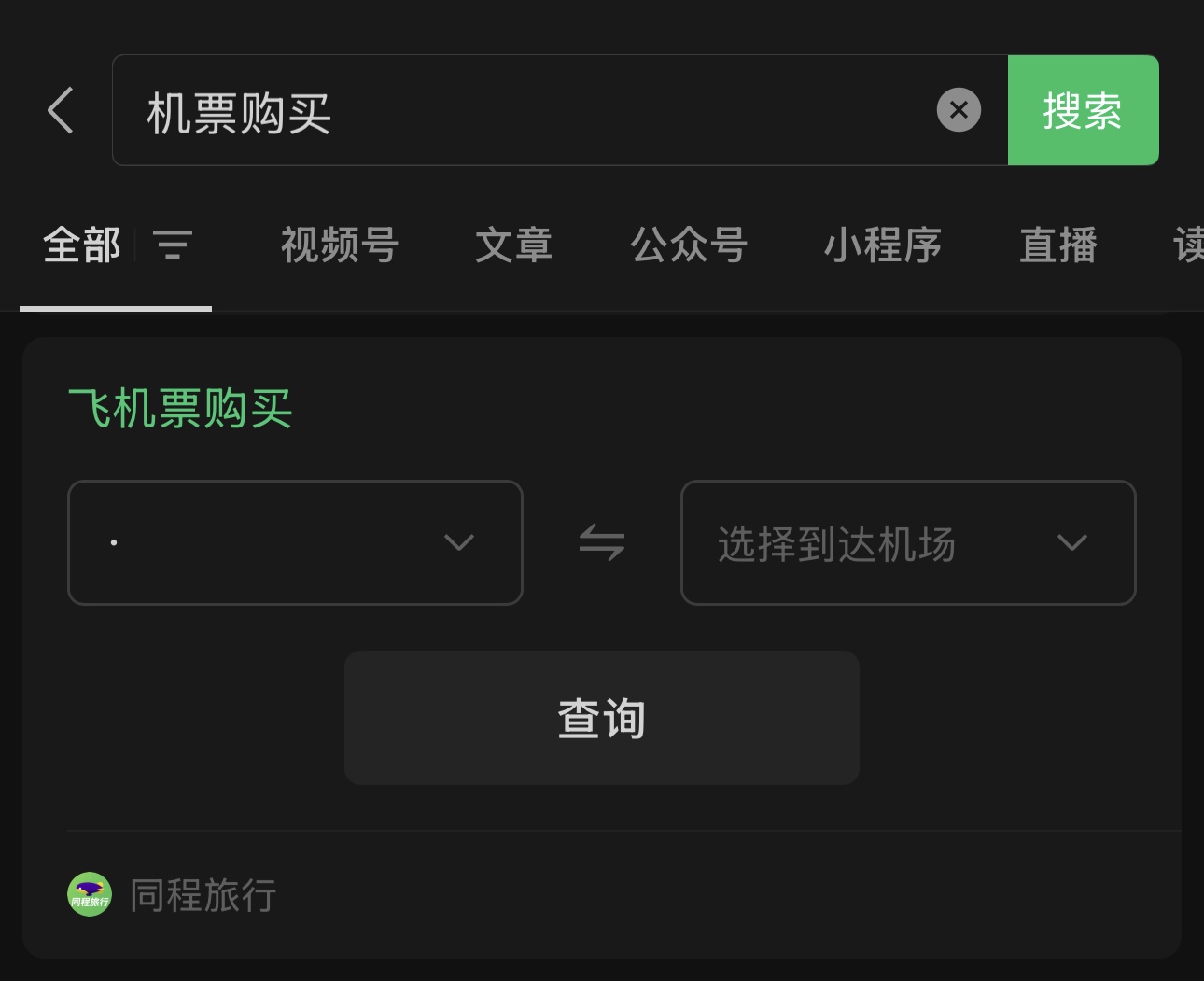
Image source: Leitech
In short, 'Search Direct' allows users to jump directly from search results to the corresponding function interface. According to WeChat, 'Search Direct' has already covered most high-frequency functions. To be honest, from my personal perspective, I can hardly imagine waiting a full 13 years for a usable 'Search Direct,' which also highlights the fact that WeChat is a 'slow product.'
Is 'Search' the starting point of 'WeChat AI'?
Looking back at WeChat's recent feature updates, it's not difficult to see that WeChat has made search functionality its next main battleground. In mid-2024, WeChat introduced an AI Q&A feature into its search in a gray release: In addition to regular search results, WeChat displays AI-generated answers at the top of the results page.
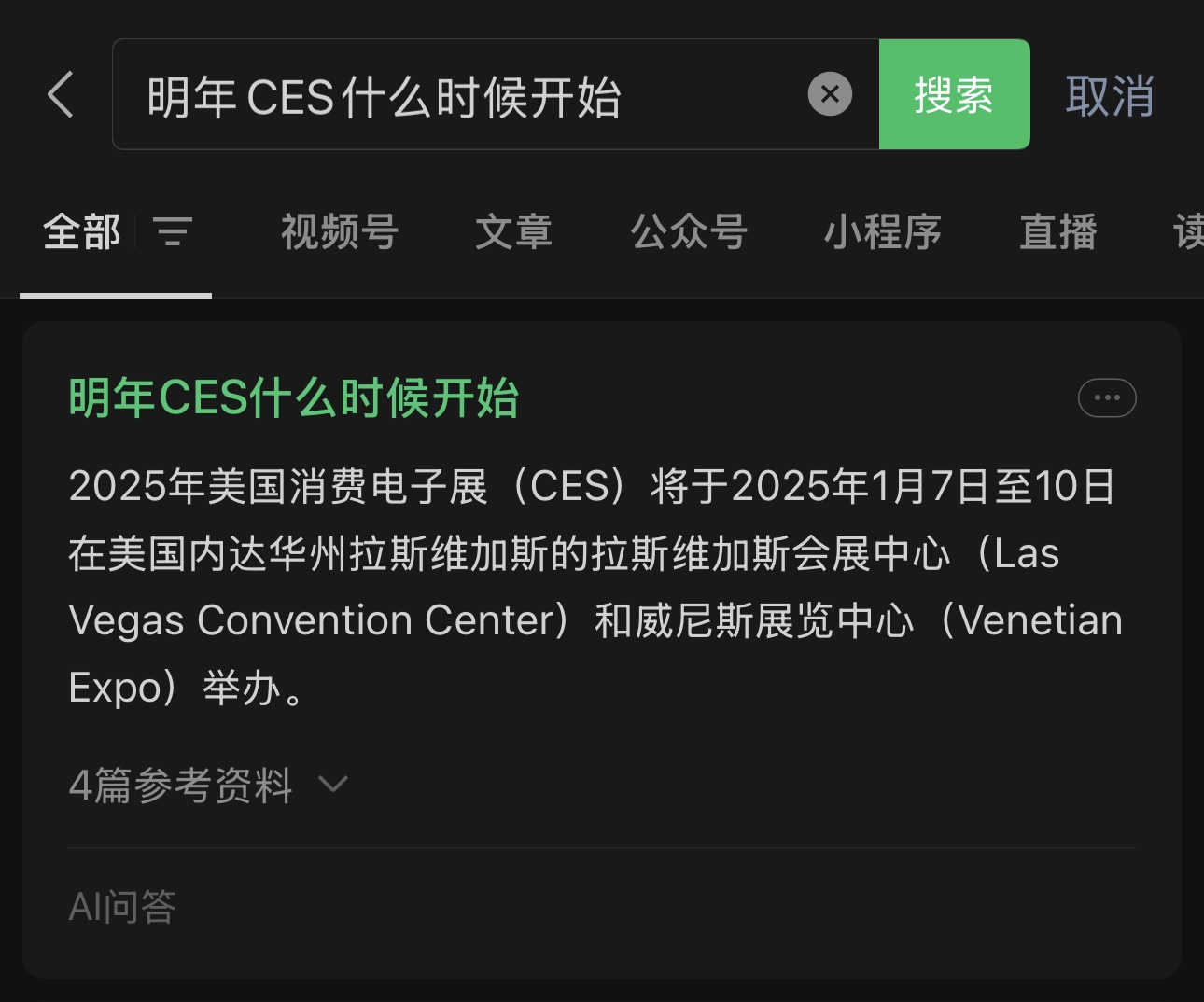
Image source: Leitech
Considering Tencent's internal product layout, it's easy to see that this AI feature in WeChat leverages the capabilities of Tencent's Hunyuan large model. In an interview, Hunyuan's head Liu Yuhong stated:
Currently, nearly 700 Tencent businesses are connected to Hunyuan,
basically all Tencent businesses are using it.
This, in my view, is also a signal that WeChat is further expanding its search capabilities. By integrating AI technology, WeChat is no longer content with providing regular search results but aims to create a direct search experience through AI. This not only enhances search accuracy and efficiency but also marks WeChat's entry into the AI search domain.
Behind this lies the ambition to build a 'second gateway' beyond mini-programs. Since their launch, mini-programs have been the core of WeChat's connection between users and services, but they still require users to actively enter specific programs to operate. AI search, on the other hand, can directly provide solutions to users through intelligent recommendations and automatically generated answers, eliminating the need for multiple jumps. This seamless service experience makes AI search another significant 'entry point' for WeChat's service ecosystem after mini-programs.
However, as Tencent's Hunyuan large model technology evolves, the potential of WeChat search goes far beyond this. WeChat can fully utilize AI to analyze vast amounts of user behavior and search content within its ecosystem, further personalizing recommendations and even anticipating user needs before they even search. This shift from passive search to active recommendation signifies WeChat's construction of a more intelligent search system, a crucial step in its transformation from a super app to a super intelligent assistant.
WeChat's AI landscape is quietly unfolding
In fact, many overseas social media platforms have already begun using user data to train AI, thereby improving the experience of AI services. Taking Meta, the overseas social platform closest to WeChat's 'super app' status, as an example, Meta has consistently invested heavily in AI and actively promoted its application in social interaction and content generation. Meta's AIGC tool was released in 2023, but as early as 2013, Meta's predecessor Facebook had already invested heavily in AI research.
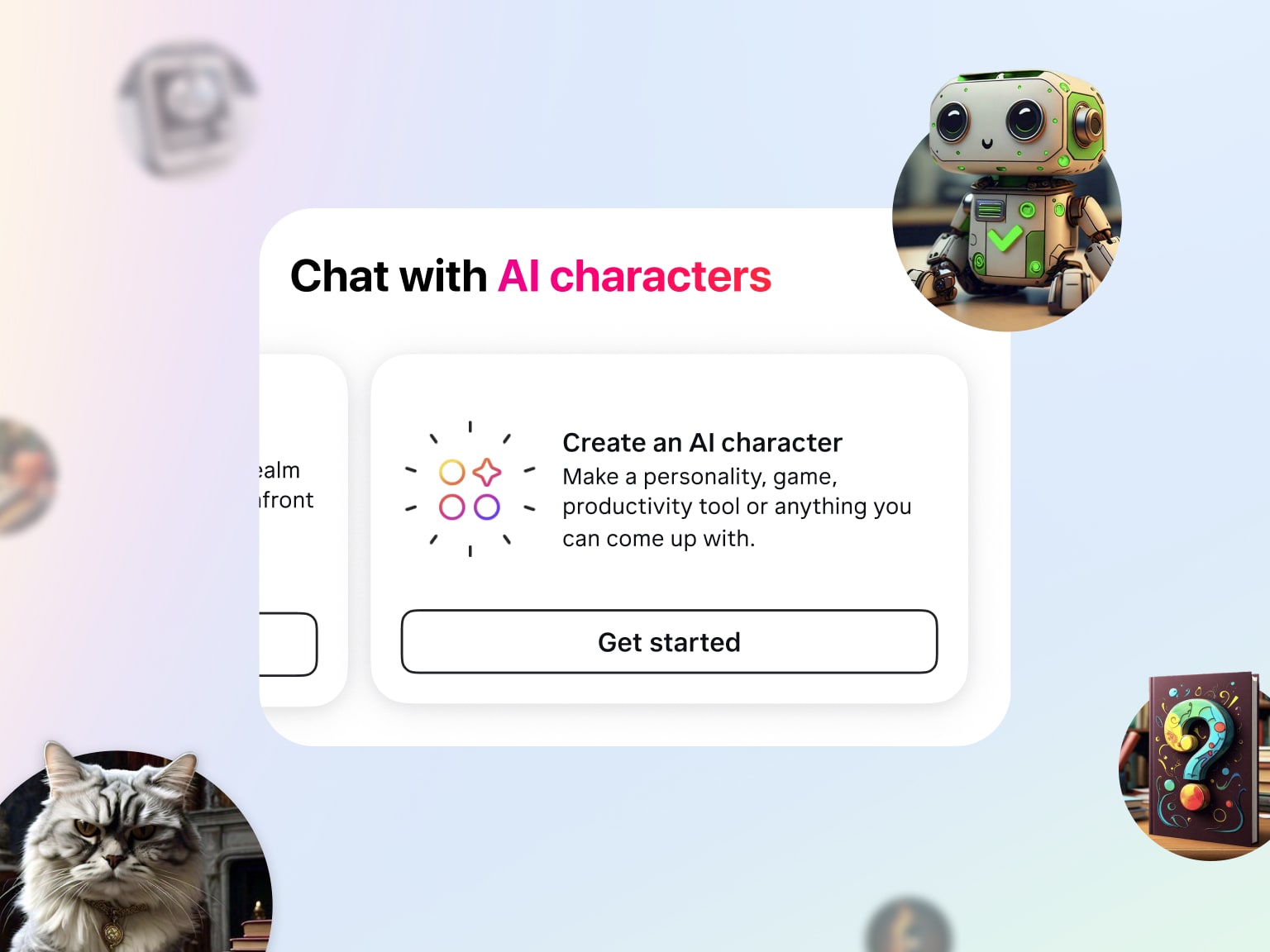
Image source: Meta
Meta's investments have yielded remarkable results: On Facebook and Instagram, users can follow trend guides provided by Meta's AI tools to create relevant content, reaching more users through Meta's AI recommendation algorithm. This 'AI assistance' not only enhances users' creative efficiency but also increases user stickiness on the platform. On Instagram, many users even exclusively upload content created using AI technology.
A similar phenomenon can be observed on Douyin. In the social media industry, Douyin has long been renowned for its intelligent recommendation algorithm. Leveraging AI technology, Douyin can precisely analyze users' viewing behavior and push video content most suited to their preferences. This recommendation system based on big data and AI algorithms allows users to access their interests quickly, keeping them engaged within the AI recommendation loop and significantly increasing their dwell time and usage frequency.
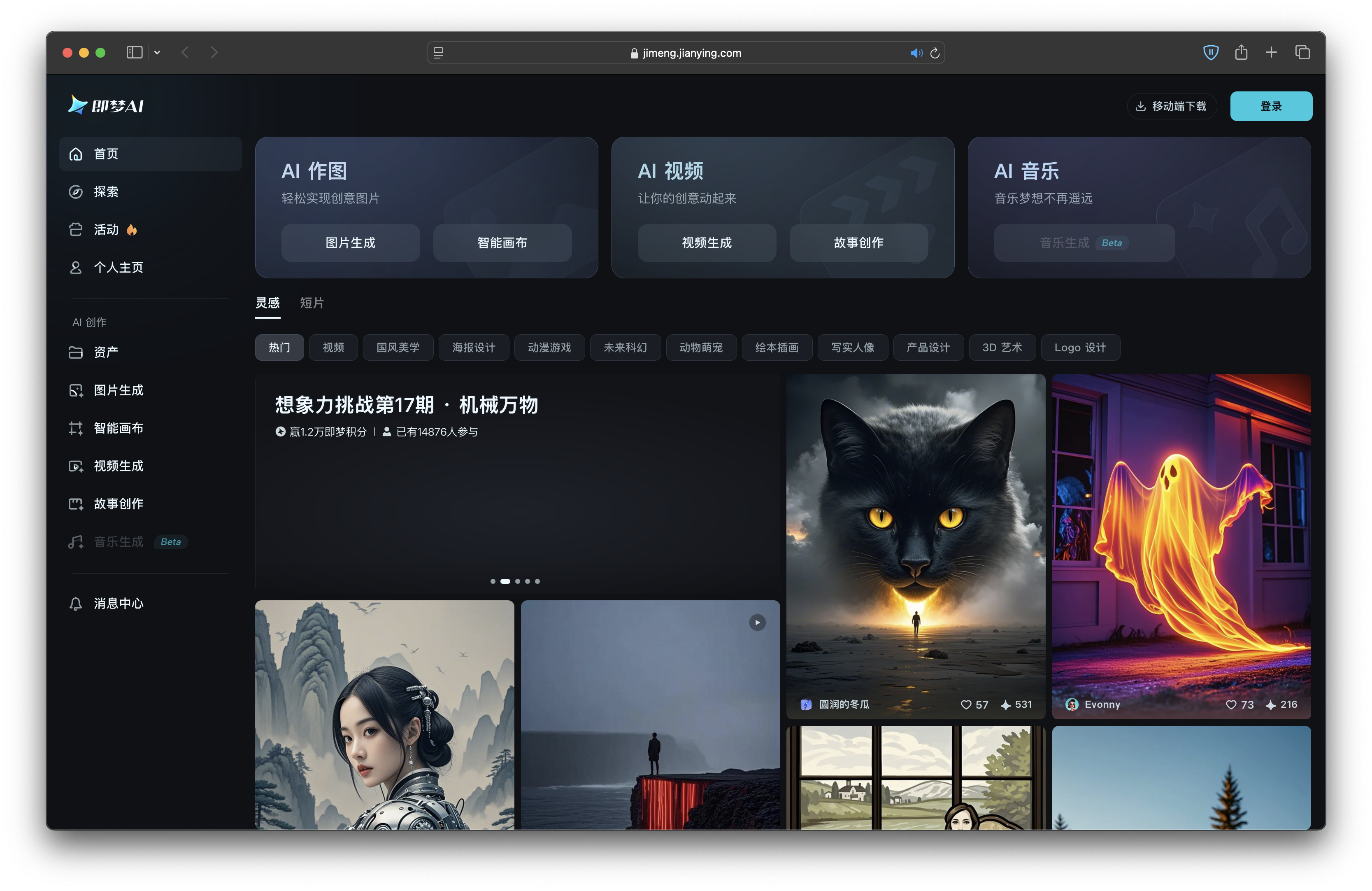
Image source: CapCut
In terms of content generation, Douyin is also at the forefront of the industry. With AI, Douyin provides creators with a plethora of intelligent tools. Speaking of Douyin's AI creation tools, CapCut cannot be overlooked. Leveraging its powerful AI technology, CapCut greatly simplifies the video creation process. Through intelligent editing, automatic music matching, and automatic subtitle generation, even users without professional experience can easily produce high-quality videos, lowering the barrier to video production.
In contrast, WeChat's approach to AI is noticeably more conservative. Although WeChat is gradually introducing AI features, such as AI search and the Tencent Hunyuan Assistant mini-program, these primarily focus on enhancing users' daily convenience rather than revolutionizing content production or social interaction models. Of course, many WeChat official accounts have already fully adopted AI writing.
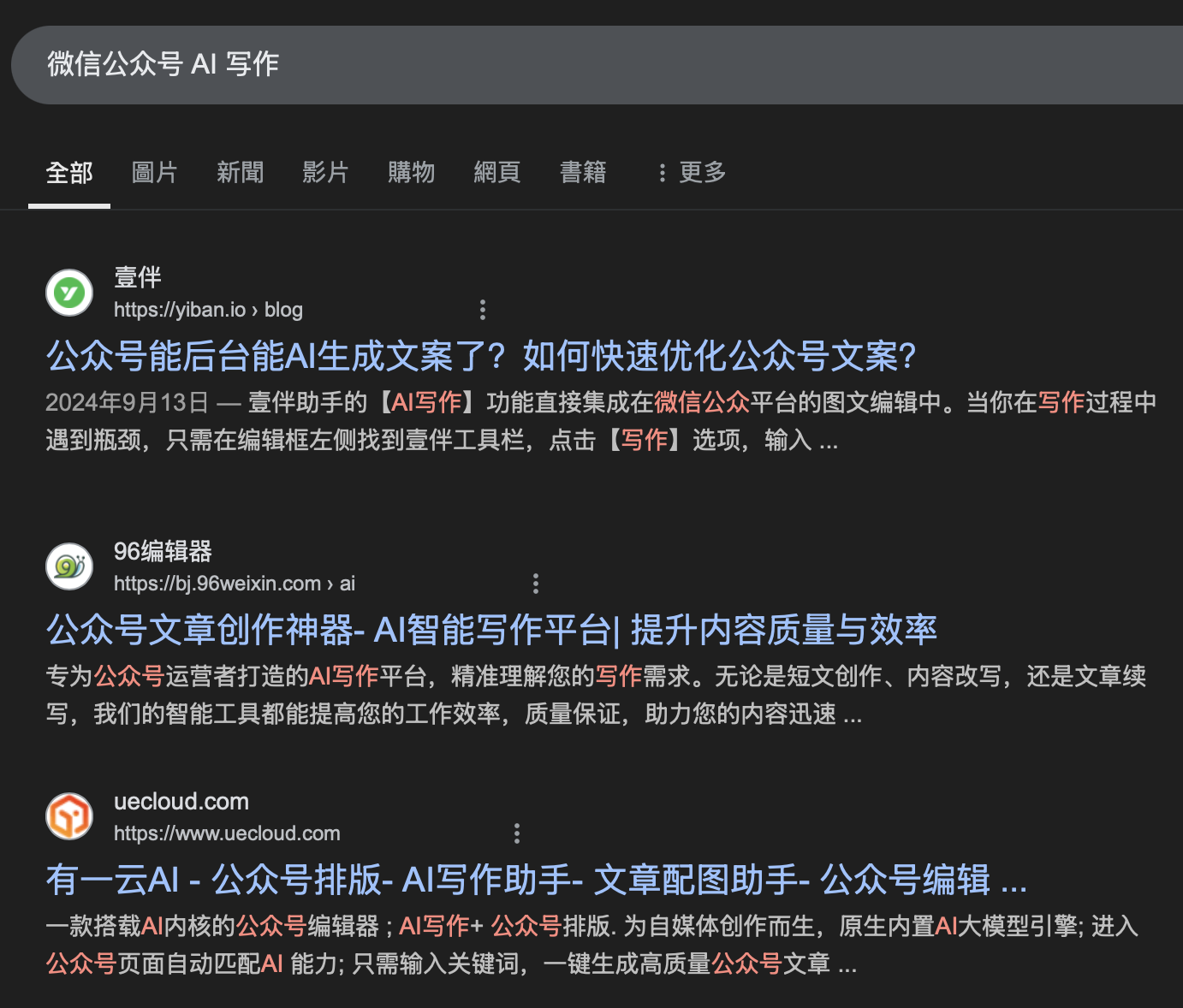
Image source: Leitech
For WeChat, rather than rushing headlong into the AIGC era, it is more prudent to use AI to enhance functional stability and balance user experience, avoiding user backlash caused by AIGC overuse. In maintaining consistency in user experience, WeChat's approach is clearly superior.
Is 'AI WeChat' Tencent's next big thing?
Looking ahead, WeChat will undoubtedly continue to delve deeper into the AI realm. With its vast user base and rich ecosystem, WeChat has a unique advantage in the AI era. Leveraging Tencent's Hunyuan large model, WeChat is fully capable of integrating AI technology into more scenarios, providing users with more convenient services. Here are a few examples:
AI-integrated WeChat can offer more thoughtful auto-reply options based on context and user habits; official accounts can quickly and efficiently address user inquiries; even in Moments editing, AI can automatically enhance photos, generate captions, and enhance posting efficiency.
The addition of these features will fundamentally alter how WeChat is used.
Moreover, WeChat's social nature provides ample space for AI technology applications. By analyzing users' interests and social behavior, WeChat can provide more precise content push and service recommendations, enhancing user experience while creating new opportunities for mini-program developers and merchants.
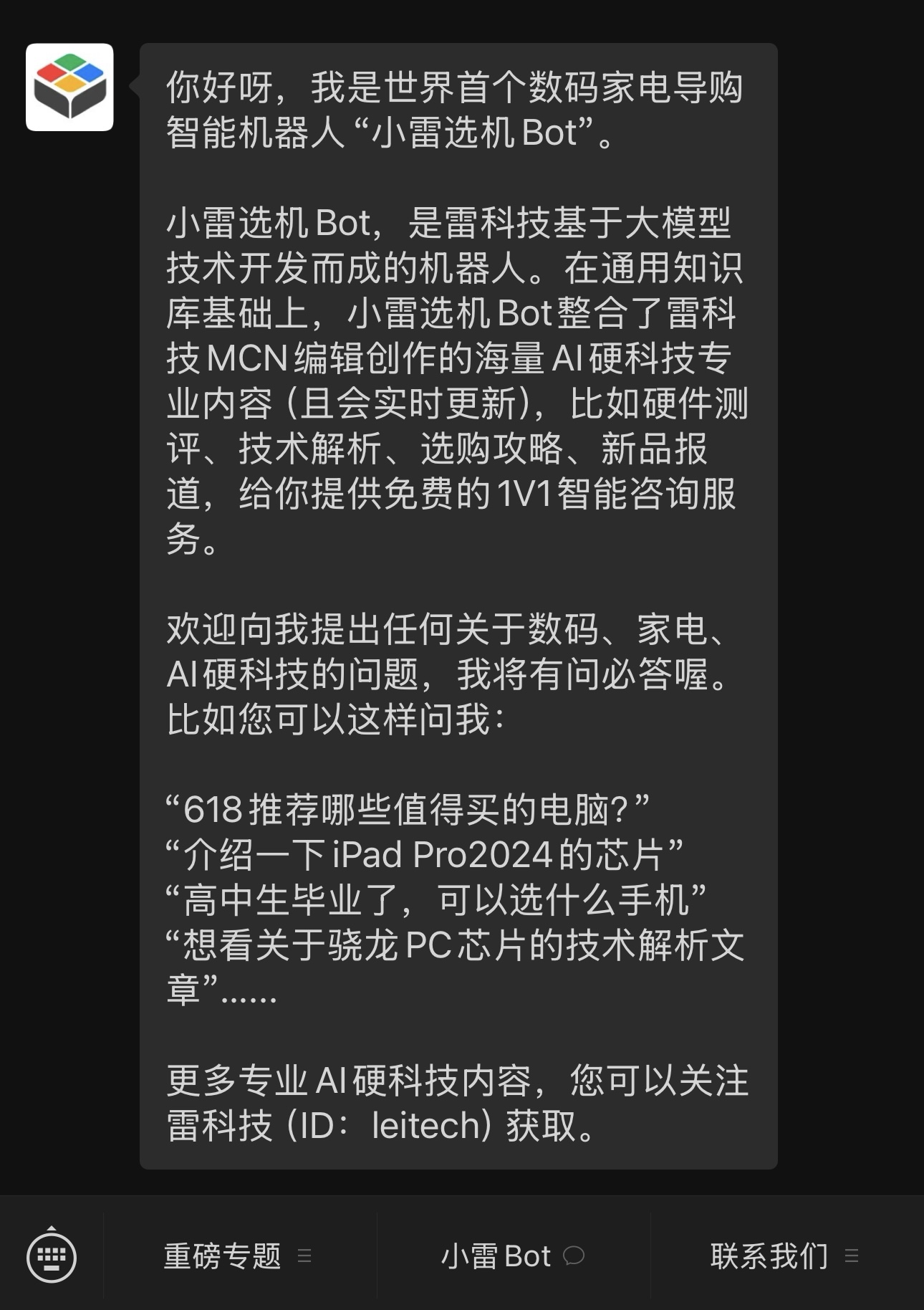
Image source: Leitech
Of course, WeChat also faces challenges on its AI journey. How to fully utilize data while protecting user privacy? How to avoid complicating user experience due to over-reliance on AI? For WeChat, which is actively promoting overseas payment scenarios, these are all issues requiring careful consideration.
Although WeChat's AI pace seems slower compared to other platforms, this might be its advantage. In the fiercely competitive market, WeChat's steady progress can still lead to significant breakthroughs in the future, bringing new possibilities to our digital lives.
At the very least, as long as AI WeChat knows when a file will be used again and doesn't proactively delete 'expired files,' that would already be more than sufficient for WeChat's 1.37 billion users.
Source: Leitech






